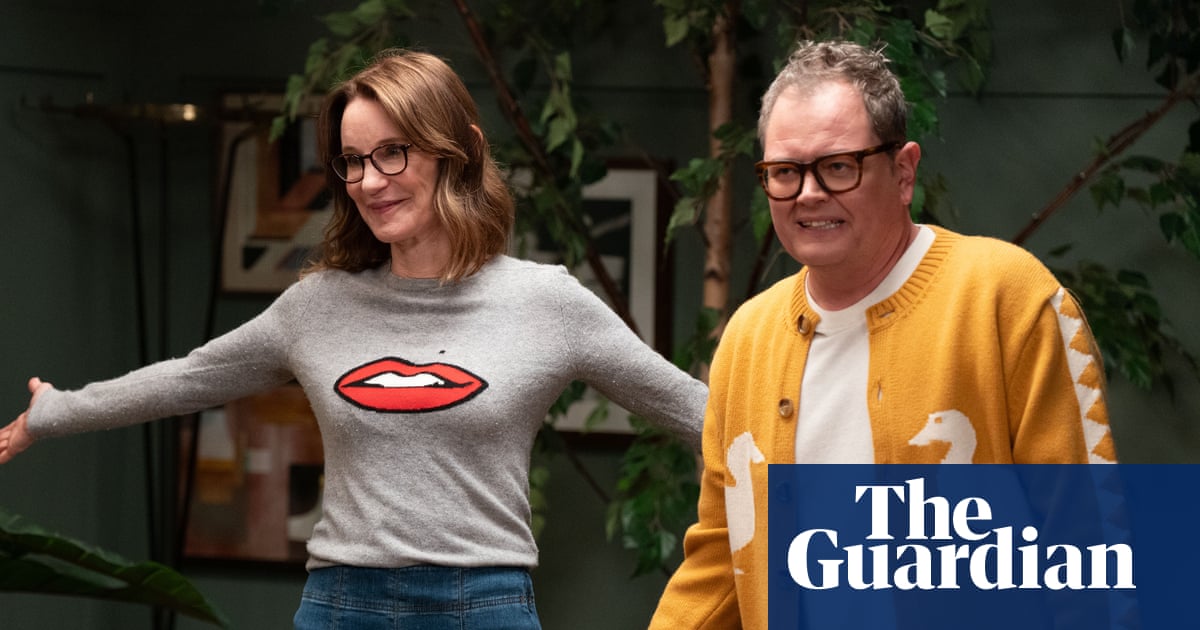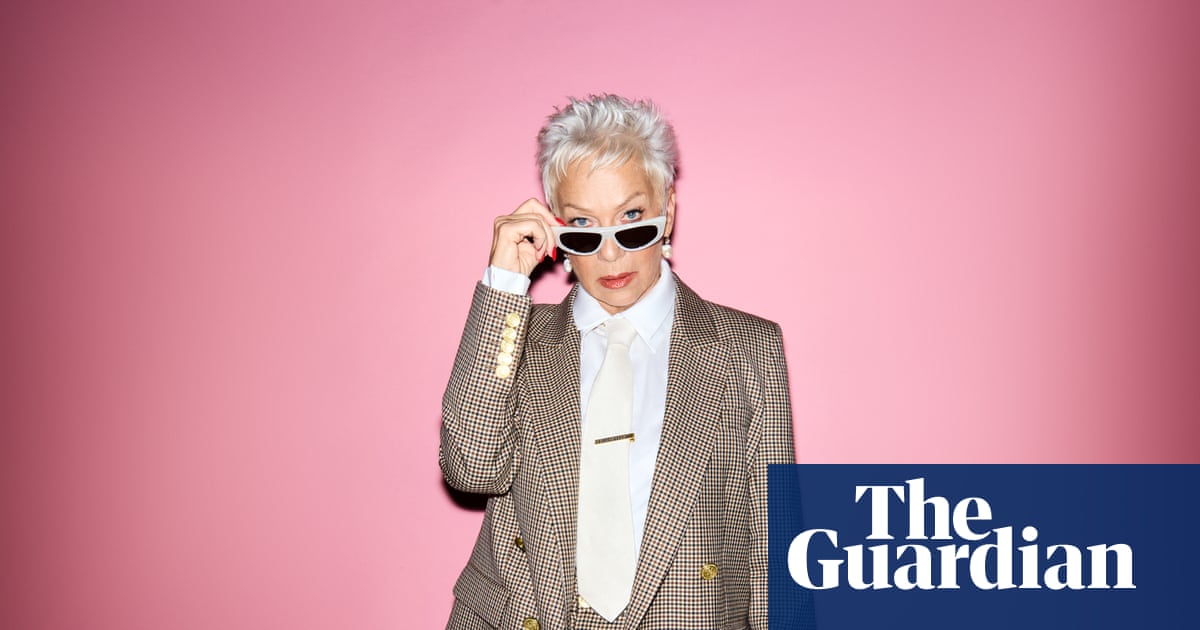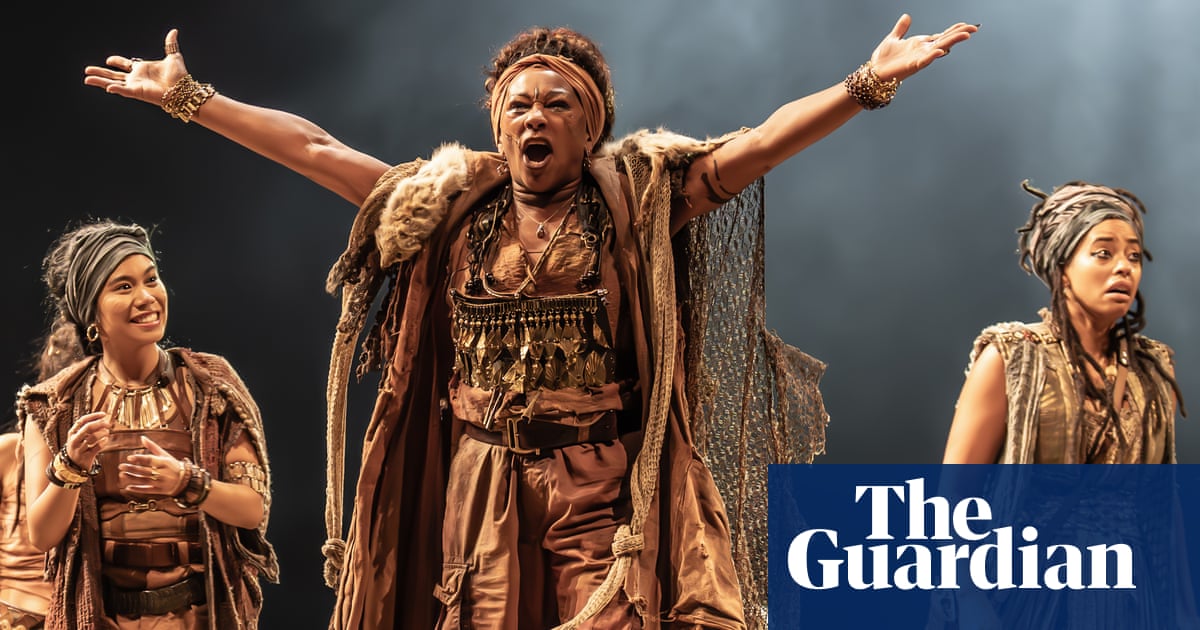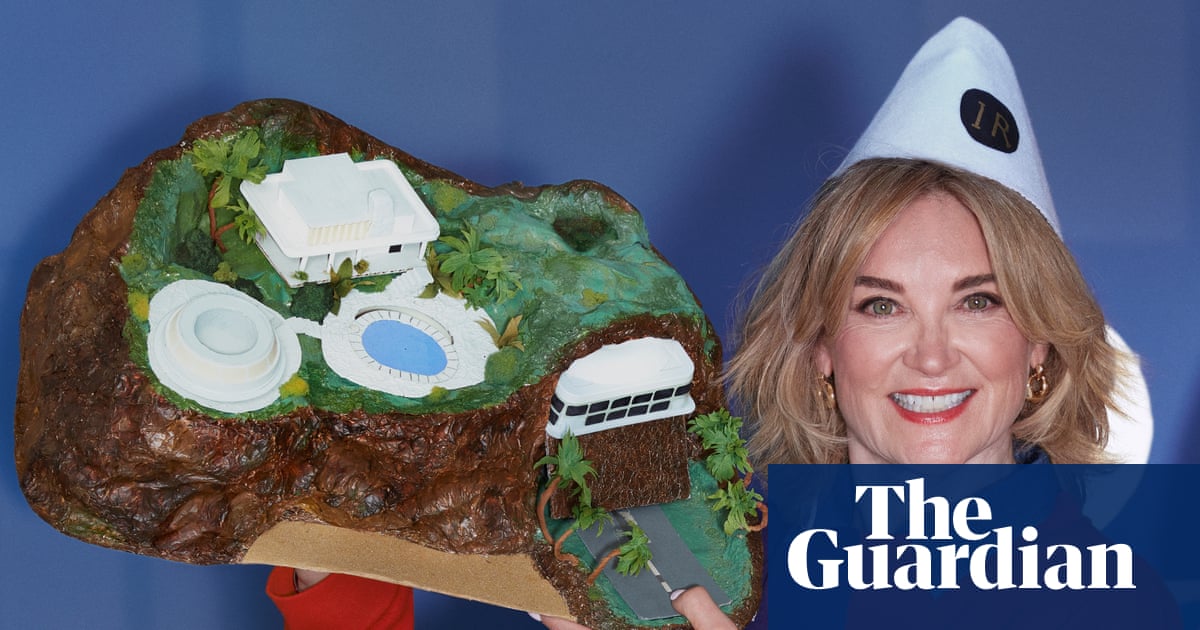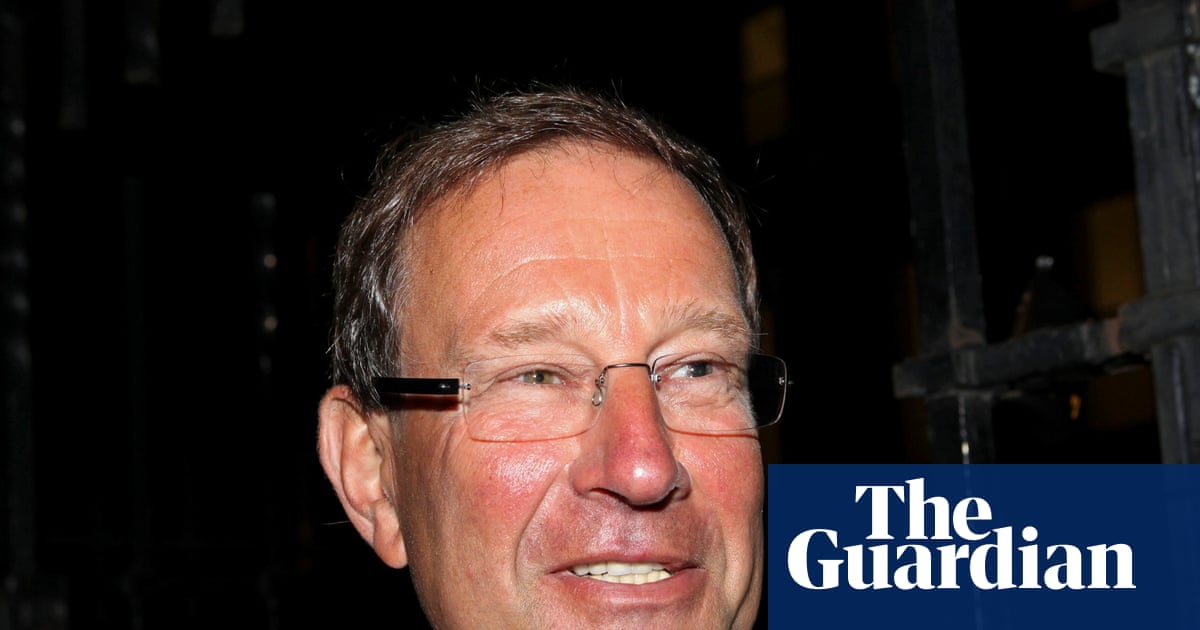“I had no intention of playing this character again. But as soon as the light went on, the house caught fire – and it’s been burning ever since.” David Harewood is talking about Othello, ahead of a new production from the Tony award-winning director Tom Morris that opens in London’s West End on 23 October. The production, which also features Toby Jones as Iago and Caitlin Fitzgerald as Desdemona, sees Harewood return to the role almost 30 years after his landmark performance at the National Theatre.
When he took on Othello in 1997, it was the second time he’d done so in his then-short career. The first was at the Swan theatre in Worcester six years earlier – an opportunity for him to familiarise himself with a text he’d certainly revisit in the future, his agent at the time told him. Now he was at the Cottesloe (renamed the Dorfman in 2014) as the first Black man to play Othello on a National Theatre stage.
The venue was significant not only because of his race – it was still rare for Black actors to be cast in the part, directors instead often choosing to put white actors in blackface – but also because it was the same space in which Laurence Olivier set the gold standard for the character decades earlier. Olivier’s 1964 performance, which later aired on the BBC, shows the actor thickly painted and shiny with blackface makeup, capped with a kinky dark wig. In interviews he described going down to the docks to study Black people so that he could perfect their movements and mannerisms. The performance became a blueprint: to this day, it is still heavily referenced as aspirational. Even Harewood, who made a BBC documentary in 2023 about the strange and racist practice of blackface, describes Olivier’s Othello as “flawless”.
Shakespeare’s tragedy follows Othello, a Moorish general in Venice. Through manufactured evidence, Othello’s ensign, Iago, convinces him that his wife, Desdemona, has been unfaithful. Consumed by jealousy, Othello murders Desdemona, only to discover her innocence too late – a revelation that drives him to take his own life.
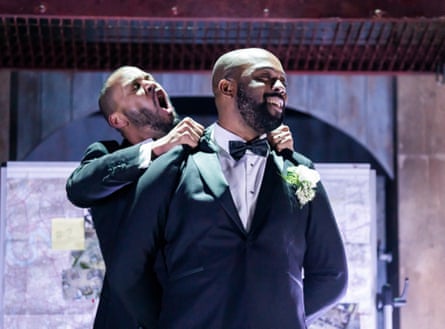
The modern stage performance history of Othello in the UK begins with Rudolph Walker at the Malvern Festival Theatre in 1966. Of course there were performances by Black actors before him – Ira Aldridge, Paul Robeson, Errol John – but it was after Walker that attitudes towards casting Black people in the role began to significantly shift. Walker was received well enough in Malvern that he would be cast in the role again multiple times, including at the Young Vic theatre, but not so much as to immediately end the blackface tradition. When, for the Othello that was recorded as part of its Shakespeare Collection in the 1980s, the BBC had the opportunity to cast him or indeed any other Black actor (the American James Earl Jones was blocked by Equity, which threatened to thwart the production with a strike unless a British star was cast), it was a blacked-up Anthony Hopkins who was chosen to play the lead role.
It is true that Shakespeare rarely wrote parts specifically for Black actors. Othello is one of just three prominent characters in his repertoire explicitly written to be played by an actor of darker skin tone, and the only lead role. This fact, plus what could be described as a lack of imagination in the theatre industry when it comes to the Bard’s plays, creates a sense not only that every Black male actor is hoping for their turn to play Othello, but also that their aspirations are somewhat restricted to that hope, because they are less likely to be cast as Romeo, for example.
Lucian Msamati – who played Iago at the RSC in 2015, believes there is racism in the idea that actors be restricted in their roles by the colour of their skin. His upbringing across Tanzania, Malawi and Zimbabwe meant that everybody from the president to the pauper looked like him, and so playing outside his race was never a big deal. “I’m an actor, I was never a Black actor until I came here,” he says. The topic of whether he should be allowed to play Iago, written as a white character, was hotly debated among the backlash when his casting was announced.
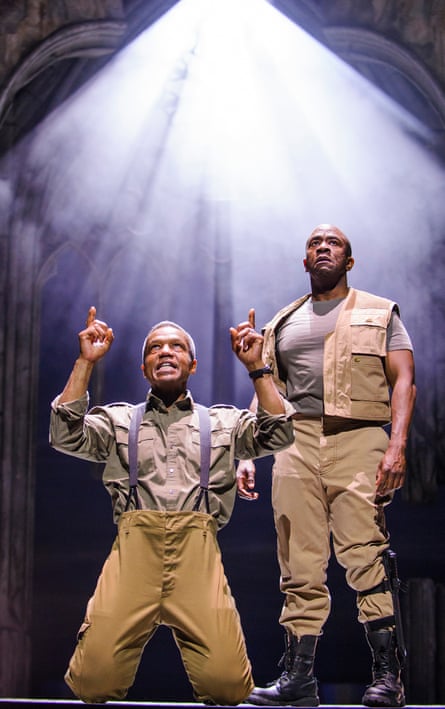
Recalling a conversation he’d had during the run with a fellow cast member, a white man who expressed a desire to play Othello, Msamati said he responded: ”You have a way in with originality, with integrity, that is true to the story – whyever not?” While there are definitely some who’d argue that white people should not play Othello at all, there seems to be more of a consensus that it isn’t simply white actors playing the part that’s the issue, but rather white actors using racist stereotypes to imitate Black identity in their portrayals.Harewood not only disagrees with the idea that all Black male actors are essentially Othellos-in-Waiting but rejects the notion that their aspirations should be so limited by race. Before he was ever cast in the title role he was much more interested in Iago, Othello’s villainous standard-bearer, which by line count is the bigger undertaking of the two – some might argue it’s also a more interesting character. “I think you’ll probably find as many Black [male] actors who want to play Hamlet. I want to play King Lear, I want to play Macbeth – this is the third time I have played Othello, but I’d be just as excited to play Richard III.”
Ken Nwosu – who has just finished playing Aaron in Titus Andronicus at Hampstead theatre – also wouldn’t say he’s always dreamed of playing Othello specifically. He was always sure, however, that Shakespeare would feature prominently in his acting career. He recalls being asked at his drama school audition where he saw himself in 10 years’ time, and immediately answering: “The RSC”. Nwosu was first cast to play the Moor as understudy to Hugh Quarshie just three years after graduating from Drama Centre London. Looking back, he says he felt a bit too young for it at the time but the experience was formative, and definitely cemented his ambition. Last year, almost a decade later, he reprised the role in Ola Ince’s production at the Shakespeare’s Globe’s Sam Wanamaker Playhouse.
While many Black actors who’ve performed Othello have done so at the beginning of their career, using it as a platform to showcase their acting ability or develop their craft to prepare them for more high-profile projects, Chiwetel Ejiofor took a different route. His Olivier award-winning Donmar Warehouse performance came after starring in Hollywood movies such as Children of Men, American Gangster and Love Actually. Like Harewood, he played the role as a youngster, fresh out of drama school, and then returned to it some years later. At that point there was still a relative scarcity of Black performers on stage in any capacity, and certainly not in leading roles. Simultaneously, it was at the tail end of all those conversations about whether Black people should be in Shakespeare at all. “I felt like there was a lot more to that conversation – not just with the part but about what the meaning of Othello was in the culture at the time,” Ejiofor says.
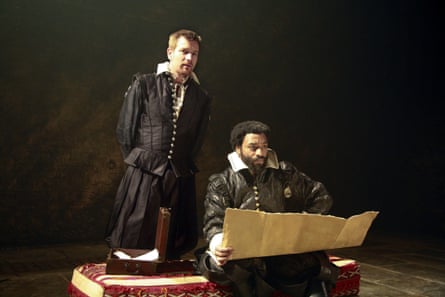
He believes Shakespeare was able to tap into something much more ahead of his time in terms of his positioning of Black characters. “The critique of racism is so strong in Othello,” he says. “The critique of Iago is so strong, as is the critique of Brabantio, Desdemona’s father. All of these characters that Shakespeare is writing as petty and racist and jealous – even though that system ultimately does bring down Othello – is still a critique of that system. If we’re trying to get into the psychology of Shakespeare’s attitude to Blackness, it’s very rich and progressive in many ways.”
The British Black and Asian Shakespeare Performance Database reveals a stark illustration of the way in which Black actors are limited by the colour of their skin. It’s a digital archive created and maintained by Dr Jami Rogers at the University of Warwick to celebrate the contributions of Black, Asian and minority ethnic performers to the history of Shakespearean performance since 1930. According to the database, 72 different Black actors have played Othello in 93 different productions in that time. By contrast, six different Black actors have played King Lear across seven productions, and the same numbers apply to Hamlet. There’s no accurate number for how many productions of Hamlet or King Lear have cast a white actor in the lead role but a conservative guess could easily put it in the hundreds, if not thousands of productions over the course of the last century. There’s a gross double standard at play here – white actors are given access to roles written for darker-skinned actors, while Black actors are effectively limited from playing all roles, including the ones that are, essentially, written for them.
after newsletter promotion
Harewood admits he didn’t really understand the complexities of relationships and emotions in Othello when he played the title role, opposite Claire Skinner, back in 1997. “Most of my anger was formulated in volume and aggression. I think I just screamed at her for two-and-a-half-hours.” With the wisdom of the years passed, he’s able to look at Shakespeare’s words with an appreciation for the full depth of their intention. “It isn’t just rage – it’s loss, it’s hurt, it’s self-loathing, it’s insecurity, it’s vulnerability. Anybody who’s been in a loving relationship or a marriage knows that when you do have arguments, they’re not a full-tilt 10 – they’re twos and threes and then nothing and then twos and fives and then nothing. It’s a kaleidoscope of emotion.” Coming back to the part has also given him a greater appreciation for the skill required in the undertaking: “It’s a real opportunity to test yourself technically as an actor. I wasn’t old enough and I wasn’t experienced enough to just enjoy the language and the verse.”
It is perhaps because Harewood is a different person today that he is seeing things in the play he didn’t see before. He’s an older man, carrying the complexities of a lifetime, which have taught him that “when you embrace your vulnerability, it gives you a hell of a lot of strength”. He’s been amazed at just how emotional rehearsals have been right from the start because the script touches upon so many feelings. In 1997, he says, he was overly preoccupied with offering an authentic portrayal of Blackness above all else: “I wanted to bring that believability – I wasn’t free enough to have fun and play the role.”
This time, he is less concerned with that authenticity as he once was. He has examined his vulnerabilities and insecurities and is weaving those into the character. He is uniquely able to identify with Othello in the time leading up to Desdemona’s murder because of his well-documented struggles with his own mental health. “I think the character does go into a form of psychosis – and I’m drawing on my own experience because during my psychosis I did a whole lot of things I didn’t want to do because the voices in my head told me to do them.”
Being the first carried with it a huge pressure. He was aware of how his performance might influence the careers of those coming after him: “One wants to not just open the door but kick it down for the people behind me.” But the role itself is also profoundly challenging – not just because of the racism but also the misogyny, which rears its ugly head mostly in the second half where Othello slaps Desdemona in public. “We all deify Shakespeare. We all think he is a genius because of the things he talks about and yet a lot of his women are quite weak and subservient. It is hideously misogynistic and we are trying to play against that. When we started looking at those elements in the play this time, I felt awful. I felt like a monster. And then you’re playing into the stereotype of the Black monster – I found that really difficult.” He’s grateful to have a drama therapist in the rehearsal room to remind him he is an actor, playing a part.
While there’s no doubt that the play was written for a blackface performance, Harewood is keen to eradicate the ways in which the outdated tradition transforms Othello’s race into a dramatic device that drives the action and advances the plot. “Blackface is full of trope and I think some of those tropes inform the play.”
Dr Jason Allen-Paisant also examines the insidious nature of blackface in his award-winning poetry collection Self Portrait as Othello. Just as in the forthcoming production, his work seeks to de-couple Othello’s actions from the fact of his race and skin colour. “One of the reasons I am interested in this Shakespeare is that it is, paradoxically, both an erasure and a record,” he says. “At the same time as recording the existence of Black people in 16th-century Italy, it simultaneously erases the same by reducing Black identity to a pack of stereotypes.” The narrative of his book is significantly driven by the objective of creating a backstory for Othello. “These myths have an enduring power. I wanted to imagine for him the density of a real character, with a real story,” he says.
Countless productions have given in to racist interpretations of Shakespeare’s original script, presenting Othello as a man who murders his wife because violence is inherent to Black identity. One of the things Harewood is most concerned with in that respect is to restore dignity to Othello’s character. “He loves, hard. There’s no honour in what he does, but there’s heart in it. I want the audience to leave the theatre thinking it’s a sad tragedy because a great man was corrupted.”
Othello is at the Theatre Royal Haymarket, London, 23 October to 17 January.

 3 months ago
72
3 months ago
72
